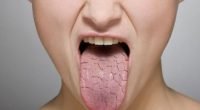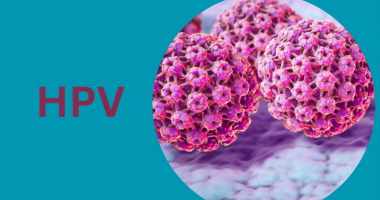Sicca syndrome, also known as Sjögren’s Syndrome, is a disorder of the immune system that affects the eyes and mouth. It has both physical and psychological effects on those suffering from it. This article will examine the causes, diagnosis, risk factors, treatment options, and medication associated with Sicca syndrome so that you can better understand this condition.
Sicca syndrome, also known as Sjogren’s syndrome, is an autoimmune disorder that affects the glands that produce tears and saliva. The most common symptoms are dry eyes and dry mouth. Other symptoms can include fatigue, joint pain, skin rashes, and problems with digestion, urination, and sexual function.
The cause of Sicca syndrome is unknown, but it is thought to be related to a combination of genetic and environmental factors. There is no cure for Sicca syndrome, but treatments can help relieve symptoms.
Causes of Sicca Syndrome
There is no known single cause of Sicca syndrome. However, the condition is often associated with autoimmune diseases such as rheumatoid arthritis, Sjögren’s syndrome, and lupus. It can also be triggered by certain medications, such as those used to treat cancer or organ transplant rejection. Other potential causes include infections, hormonal imbalances, and nerve damage.
Sicca syndrome can be difficult to diagnose because its symptoms are similar to other conditions. A thorough medical history and physical examination are usually needed to rule out other possibilities. Blood tests may also be done to look for evidence of an autoimmune disease. In some cases, a biopsy of the salivary glands may be necessary to confirm the diagnosis.
Diagnosis and Testing
The best way to diagnose Sjögren’s syndrome is to see a doctor who specializes in autoimmune conditions. They will ask about your symptoms and medical history. They may also carry out a physical examination.
Your doctor may refer you to a rheumatologist or an ophthalmologist for further tests. These may include:
Blood tests. These can check for signs of inflammation, such as high levels of erythrocyte sedimentation rate (ESR) or C-reactive protein (CRP). They can also check for antibodies that are often present in people with Sjögren’s syndrome, including anti-SSA/Ro and anti-SSB/La antibodies.
A salivary gland biopsy. This involves taking a small sample of tissue from your salivary gland so it can be examined under a microscope.
Schirmer’s test. This measures how much tear production you have by placing narrow strips of paper under your lower eyelids to see how wet they become over a period of five minutes.
A lip biopsy. This involves taking a small sample of tissue from your lip so it can be examined under a microscope.
Risk Factors for Developing Sicca Syndrome
The most significant risk factor for developing Sicca syndrome is having another autoimmune disease. Autoimmune diseases cause the body’s immune system to attack healthy cells and tissues. Sjögren’s syndrome is an autoimmune disease that attacks the tear and salivary glands, which can lead to dryness in the eyes and mouth.
Other risk factors for developing Sicca syndrome include:
• Family history of autoimmune disease
• Being a woman (Sicca syndrome is more common in women than men)
• Age (Sicca syndrome is more common in people over the age of 40)
• Exposure to certain environmental factors, such as chemicals or radiation
Treatment and Medication for Sicca Syndrome
There is no cure for Sicca syndrome, but there are treatments that can help relieve the symptoms. Artificial tears and ointments can help to lubricate the eyes and prevent them from becoming dry and irritated. Mouthwashes and saliva substitutes can also be used to moisten the mouth. In more severe cases, doctors may prescribe immunosuppressive drugs or recommend surgery to correct the problem.
Prevention Techniques for Sicca Syndrome
There is no one definitive way to prevent sicca syndrome, as its exact causes are unknown. However, there are a few general tips that may help reduce your risk of developing the condition.
Firstly, it’s important to stay hydrated and avoid dehydration. This means drinking plenty of fluids throughout the day and avoiding diuretics such as caffeine and alcohol.
Secondly, if you suffer from another autoimmune condition or have a family history of them, you may be at increased risk of developing sicca syndrome. Therefore, it’s important to monitor your health closely and see a doctor if you develop any new symptoms.
Finally, some medications can increase the risk of sicca syndrome, so it’s important to speak to your doctor about any medications you’re taking (including over-the-counter drugs) and whether they could be contributing to your condition.
Alternatives to Treating Sicca Syndrome
There is no known cure for Sicca syndrome, but there are treatments that can help to relieve the symptoms. These include:
Artificial tears: these can help to lubricate dry eyes and make them feel more comfortable.
Eye ointments: these can also lubricate dry eyes and make them feel more comfortable. They can be used at night to help protect the eyes from further damage.
Punctal plugs: these are small devices that are inserted into the tear ducts to help prevent tears from draining away too quickly. This can help to keep the eyes lubricated for longer periods of time.
Steroid eye drops: these can help to reduce inflammation and swelling in the eyes. They may be used short-term or long-term, depending on the severity of the condition.
Antibiotic eye drops: these may be used if there is an infection present in the eyes.
You may like | How to lighten dark armpits and knees fast at home
Conclusion
Sicca Syndrome can be a very challenging condition to live with, but understanding the causes and risk factors, being aware of the various treatment options available, and knowing what medications are most effective in managing symptoms can help you take control of your situation. We hope that this article has provided you with some insight into Sicca syndrome and its management so that you may make informed decisions about your own health care. If you feel like any additional information or support is needed, please don’t hesitate to contact your healthcare provider for assistance. Home
Source One | Source two | Source three










